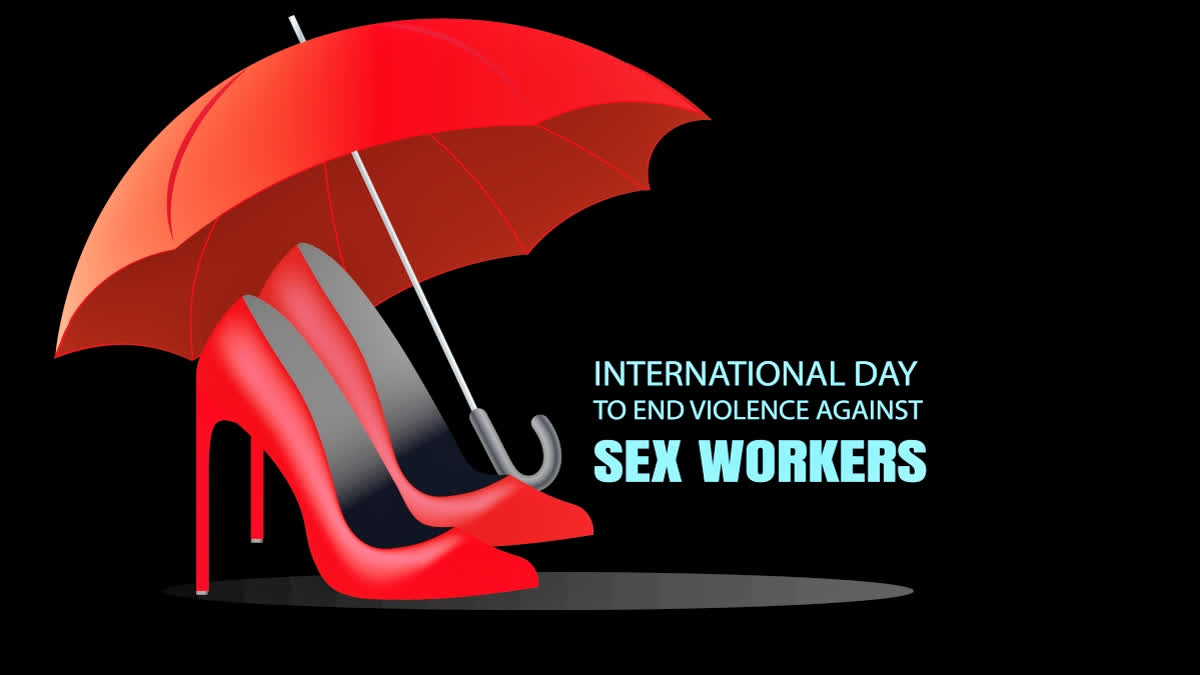Hyderabad: The International Day to End Violence Against Sex Workers observed on December 17 annually, sheds light on the pervasive issue of hate crimes against sex workers worldwide. The day focuses on the major issues faced by sex workers, along with stigma, discrimination, and other human rights violations.
History- Originating in 2003 as a memorial for victims of the Green River Killer, the day has evolved into a global observance aimed at addressing the social stigma and discrimination contributing to violence against sex workers. Annie Sprinkle and the Sex Workers Outreach Project USA (SWOP) initiated the day, emphasizing the harmful impact of laws criminalizing sex work, and perpetuating abuse against law-abiding citizens.
Quote from SWOP USA- "December 17th is International Day to End Violence Against Sex Workers. This event was created to call attention to hate crimes committed against sex workers all over the globe. The laws against Sex work are harmful to society. They perpetuate the abuse of otherwise law-abiding citizens, particularly women..Since 2003, Day to End Violence Against Sex Workers has empowered people from cities around the world to come together and organize against discrimination and remember victims of violence."
Red Umbrella Symbol- The event, since its inception, has empowered communities globally to unite against discrimination and commemorate victims of violence. The red umbrella, symbolising sex worker rights, gained significance in Venice in 2001 and has become emblematic of events on December 17.
Why Ending violence against sex workers is crucial? The importance of ending violence against sex workers is emphasised by the fundamental human rights they deserve, including the right to life, security, and freedom from violence. In countries where sex work is criminalised, accessing healthcare, social services, and safety becomes challenging, leaving sex workers more vulnerable to abuse, STIs, and HIV. Even in regions where sex work is legal, social stigma prevents sex workers from seeking help.
Forms of violence faced by sex workers- Forms of violence faced by sex workers include physical, emotional, and economic dimensions. Physical violence involves client-based threats, assaults, and police brutality, while emotional violence includes stigma, discrimination, verbal abuse, and lack of legal protection. Economic violence comprises limited income opportunities and facilities for many sex workers.
WHO on sex workers- The World Health Organization defines violence against sex workers as a manifestation of gender inequality and discrimination, affecting individuals based on gender, race, HIV status, or drug use. According to the WHO, violence is an intentional use of physical force or power, threatened or actual, against oneself, another person, or a group or community that results or has a high likelihood of resulting in injury, death, sexual or psychological harm, maldevelopment or deprivation of liberty.
Sex workers in India- In India, where sex work is legal but solicitation is not, sex workers encounter disproportionate levels of violence, including sexual assault, rape, harassment, extortion, and abuse from clients and agents, intimate partners, local residents, and public authorities.
Sex work is not a crime in India- In 1956, the Indian Government passed The Immoral Traffic (Suppression) Act (SITA), which allowed Sex work under legal frames but soliciting people and luring them into sexual activities was termed illegal.
How to stop violence against sex workers? Efforts to address violence against sex workers involve advocating for their human rights, creating police and institutional accountability, promoting workplace security, and providing comprehensive support services. The Supreme Court of India recognised sex work as a profession in 2022, emphasising the rights of sex workers and their children under Article 21 of the Indian Constitution. Notably, the shift from using the term 'prostitute' to 'sex worker' in legal contexts reflects a more respectful and dignified approach.
Stats related to Sex work in India- Statistics from the National Crime Records Bureau highlight the prevalence of human trafficking for sexual exploitation in India, emphasising the need for continued efforts to safeguard sex workers. Within a year (2022) total of 1983 people became victims of Human Trafficking with the purpose of Sexual Exploitation for Sex work, according to the NCRB 2022 report in India.
Security of sex workers- To enhance the security of sex workers, strategies include capacity-building, documenting violence, advocating for legal reforms, promoting police accountability, and integrating violence prevention into HIV counselling interventions. The holistic approach involves providing health services, psychosocial support, legal aid, and disseminating safety information to empower sex workers to navigate their profession safely.



